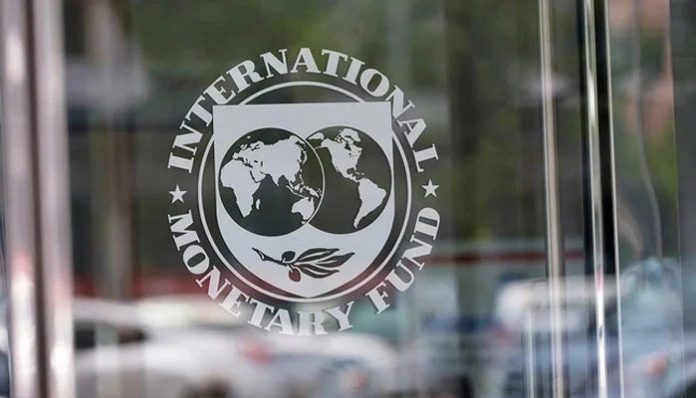DNA
ISLAMABAD: Amid kick-starting of parleys for clinching a fresh bailout package of $6-8 billion for Pakistan’s struggling economy, the International Monetary Fund (IMF) has come up with a tax gap analysis and estimated that the policy and compliance gap stood at 6.9% of GDP, equivalent to Rs7,000 billion on annual basis.
Pakistan and the IMF’s visiting mission entered into talks here on Monday, whereby Mission Chief Nathan Porter-led delegation held a meeting with Minister for Finance Mohammad Aurangzeb. The IMF mission chief pointed out political stability and its importance for pursuing the path of structural economic reforms to achieve growth on a sustained and durable basis under the expected bailout package of $6-8 billion from Extended Fund Facility (EFF).
Pakistan also took up the issue of augmenting the amount of EFF through climate finance in order to jack up the total size of the package to around $8 billion. A press release, issued here on Monday, said the IMF mission, led by Nathan Porter, called on the Pakistan finance minister on Monday at the Finance Ministry to kick-start discussions on further engagement with the Fund. The meeting was attended by State Bank of Pakistan governor, Federal Board of Revenue chairman, and senior officers of the finance ministry.
The finance minister thanked the mission for successful completion of the Standby Arrangement (SBA). He apprised the IMF team of the improvement in the macro-economic indicators over the course of the SBA and underscored the government’s commitment to continue with and expand upon the reform agenda.
According to official sources, on the tax analysis gap, the IMF and the FBR high-ups held meeting to discuss tax proposals in a threadbare manner. The IMF presented a tax gap analysis, where there are estimates that it stands at whopping level of 6.9% of GDP, translating into Rs7,000 billion on annual basis.
On policy front, the IMF said there was a gap of 3.4% of GDP, which means there was a potential to fetch Rs3,400 billion by plugging policy gaps. Out of 3.4% of GDP gap owing to policy distortions, almost 2% of GDP gap exists on account of GST, 0.6% of GDP on Income Tax and remaining 0.8% of GDP on account of Customs. On tax compliance gap, there is a total gap of 3.5% of GDP, out of which 1.5% of GDP is on account of GST, another 1.5% of GDP on account of Income Tax, 0.3% of GDP on Customs and 0.2% on account of Federal Excise Duty (FED).
The FBR had undertaken a tax gap analysis with FY22/23 data that yielded compelling results, with an estimate of the overall tax gap of 6.9% of GDP. The policy and compliance gaps each account for about half of the overall tax gap. Policy gaps are largely due to the sales tax, while the compliance gaps are about equal between income tax and sales tax. Compliance gaps are largest in the retail sector standing at 30%, transport sector 19%, cross-border smuggling and mis-invoicing 12%, and the real estate sector 5%.
The Excises (FED) contribute only modestly to the compliance gap. The earlier analysis of the tax distribution suggested that labour taxation is particularly low.
Tax gap analysis can help pinpoint the causes of Pakistan’s tax inefficiency and low capacity. While estimating tax capacity suggests what can be expected in terms of tax collections under present circumstances; it does not provide insight into the sources of revenue shortfalls. The tax gap analysis assesses difference between actual tax collections and the maximum that could be collected if standard rates are applied to the entire tax base. This is the policy gap, which corresponds to the aggregate of tax expenditures including exemptions, zero rating, reduced rates, and tax incentives for investment, and with taxpayers paying their tax obligations in full (compliance gap). Assessment of the tax gap by cause (policy or tax administration), tax type, and sector provides insight into the sources of revenue underperformance.
The IMF also raised the issue of withdrawal of sales tax exemptions on fertiliser, implementation of effective compliance risk management system for audit and ensuring compliance, 18% General Sales Tax on petroleum products as currently there is 0% GST on petroleum products, withdrawal of reduced rates for all sectors, streamlining tax rates across sectors and withdrawing preferential treatments.
The IMF also asked for strengthening public finances, including through gradual fiscal consolidation and broadening the tax base (especially in undertaxed sectors) and create space for higher priority development and social assistance spending to protect the vulnerable.

















